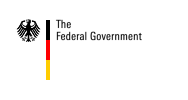The United Kingdom joined the EU in 1973, together with Denmark and Ireland, in the first round of European enlargement. It is also a member of NATO, among other international organisations.
G8
The United Kingdom has taken part in the world economic summits since the first was held at Rambouillet in 1975. It held the presidency in 1977, 1984, 1991 (Summits in London) and in 1998 (Birmingham).
The most recent Summit to be held under the British presidency, at Gleneagles in 2005, focused on the issues of Africa and climate change.
>> Gleneagles, Chair's summary
Political system
Great Britain is a parliamentary monarchy with a cabinet government answerable to parliament. There is no written constitution. The monarchy plays a largely formal and ceremonial role, while the Prime Minister has a strong position in Cabinet and in politics more generally.
The Head of State since 1952 has been Her Majesty Queen Elizabeth II. She is also Head of the Commonwealth of Nations and worldwide head of the Anglican church. Prime Minister Tony Blair is head of government.
The British Parliament has two chambers: political power lies mostly with the directly elected lower house, the House of Commons, with its 659 members. The governing party is the Labour Party, the Opposition being formed of the Conservative and Liberal Democrat parties. The House of Lords, which is the upper house, currently has 711 members. It has few powers - such as the right to delay the passage of certain types of legislation. Twelve of its members ("Law Lords") form the highest court in the land.
Great Britain is centrally governed and administered, although devolution has seen limited powers conferred upon the regions (Scotland and Wales) and on the capital city, London.
Economy
British economic policy pursues market solutions, promoting competition, minimizing state intervention in the economy and reducing the burden of regulation.
Within the European Union, Britain is an insistent champion of liberalization and deregulation within the framework of the "Lisbon Agenda" for economic reform of the EU.
The British government has in recent years significantly increased investment in the expansion of public services. This has benefited the health service, education and training and transport infrastructure in particular. Investment projects are often financed through public-private partnerships.
London is the most important financial centre in Europe. All the major banks, insurance companies, management consultancies, accountancy firms and international legal practices have a presence there. And Britain is highly competitive internationally in high-tech sectors such as telecommunications, IT, biotechnology, pharmaceuticals and chemicals, as well as in vehicle construction and electrical engineering.
Current economic situation
Economic growth was 3.1 per cent in 2004 and around 1.8 per cent in 2005. GDP growth is supported by robust consumer spending and an expansive fiscal policy.
Facts:
- Unemployment in early 2005 fell to a historic low of 4.7%
- The inflation rate is 1.6%
- Gross Domestic Product (GDP) in 2005: 1,128.7 bn GBP (1,636.6 bn EUR)
- GDP per capita in 2005: 18,864 GBP (27,352 EUR)
- GDP growth in 2005: 1.8%
Accession to economic and monetary union
The British government will join the Euro only if this is in Britain's economic interest. Should the British government recommend joining the Euro, the decision will be submitted to a popular referendum.
Britain currently meets three of the four "Maastricht criteria":
Inflation rate (2005): 1.8%
Budget deficit as percentage of GDP (2005): -3.6% (Maastricht criterion: 3%)
Public debt as a percentage of GDP: 39.5%
Long term interest rate (March 2005): 4.84% (yield on 10-year government bonds)
Foreign trade
The British trade deficit has grown, reaching some 59 bn EUR in 2005. Within the overall trade balance, trade in goods is strongly in deficit, while the balance of trade in services is positive.
